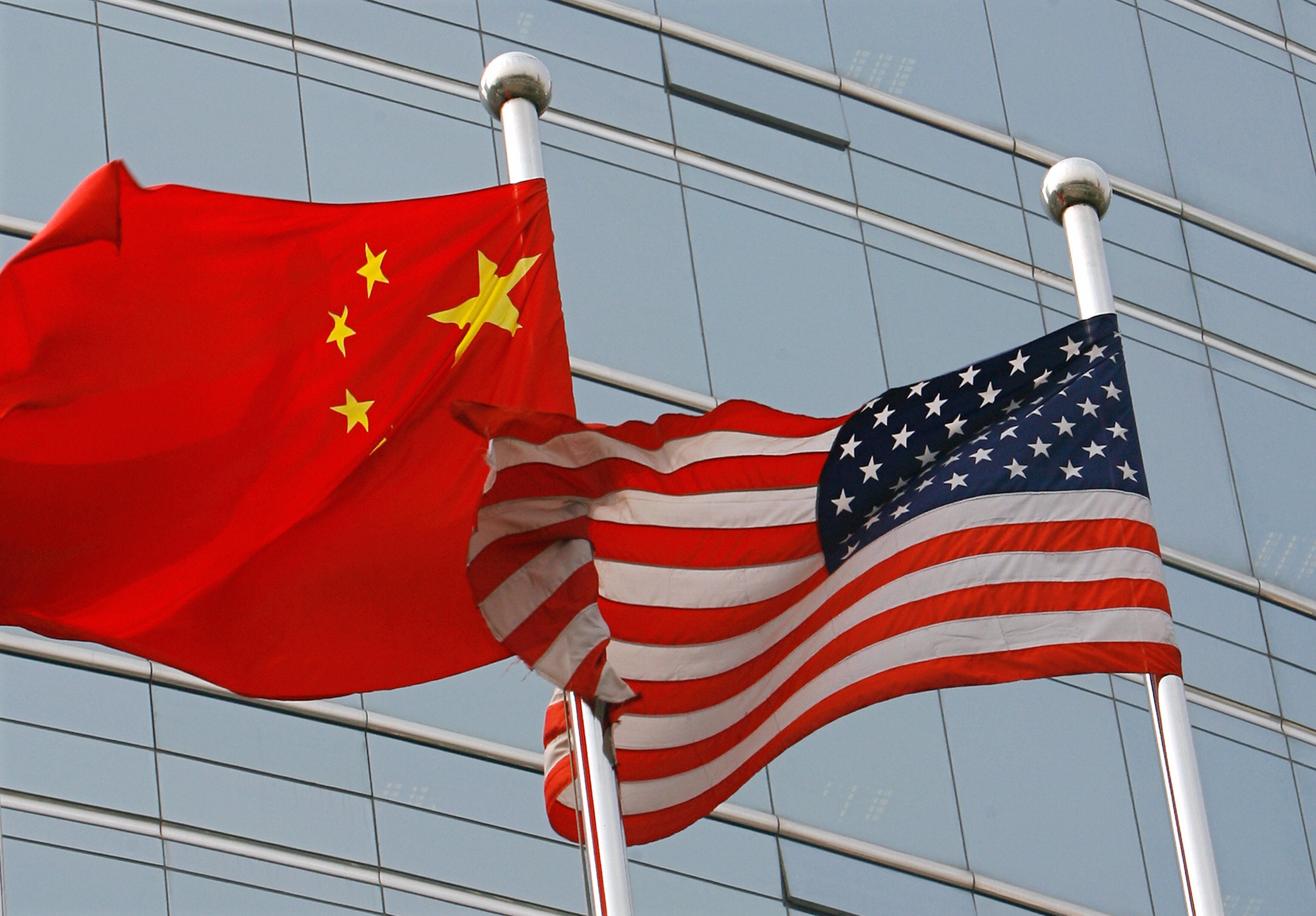The astronomical cost of asking China to restrain North Korea
It seems we may soon need to decide how much China's so-called help is really worth


A free daily email with the biggest news stories of the day – and the best features from TheWeek.com
You are now subscribed
Your newsletter sign-up was successful
A few years back at a conference in Northeast Asia, a retired senior Chinese People's Liberation Army officer told all of us attendees what he really thought of North Korea. In front of an international audience of 100 or so scholars and officials, he explained what Beijing, if pushed, was prepared to do when it came to Pyongyang's nuclear and missile programs — and what the costs would be.
"North Korea is a rabid dog we [China] have a in a large cage," the officer explained, causing one European attendee to spit out his coffee in a mix of sheer horror and comedic shock. "Yes, it can throw sharp objects out of the cage through the holes in between the bars. It can hurt you — even being locked up — but it can't kill any of us big powers. We should remember that."
He went on: "Now, if you want us to go in and restrain the 'prisoner' [North Korea], say through cuts in food or fuel supplies — considering the fact that Kim does not pose to us an existential threat in China — what are you doing to trade for it? We are not fans of the status quo, but we can live with it. We aren't going to potentially get hurt ourselves without extracting something from you."
The Week
Escape your echo chamber. Get the facts behind the news, plus analysis from multiple perspectives.

Sign up for The Week's Free Newsletters
From our morning news briefing to a weekly Good News Newsletter, get the best of The Week delivered directly to your inbox.
From our morning news briefing to a weekly Good News Newsletter, get the best of The Week delivered directly to your inbox.
And this is the problem. While the Trump administration looks to China for help on restraining North Korea's nuclear weapons and missile programs — which in the coming year could evolve to the point of actually threatening the U.S. homeland — the costs might be astronomical.
But before we start speculating about what Beijing might want in return for "helping" with the North Korea situation, we should define what, exactly, it would — and would not — be willing to do. Above all else, China will not engage in any sort of regime change, removal of North Korea's nuclear or missile programs by force, or anything that might endanger the stability of the regime. This includes cutting drastically Pyongyang's food or fuel supplies. The best we could hope for is slightly stricter enforcement of sanctions that are already on the books, maybe the ending of indirect aid China provides to North Korea's military, or pushing the DPRK back into six-party talks once again. Most reasonable policy experts would agree China should already be doing these things in the first place.
But none of this would make any immediate impact in the short- to medium-term, and what China would want in exchange for the bare minimum would be steep. Consider the number of pressure points Washington and Beijing share these days: tensions in the East China Sea that involve U.S. ally Japan, the question of arms sales to Taiwan and its future status, the South China Sea, and now bilateral trade issues. China could easily demand America back down in one of these areas, much to the peril of Washington and its various allies.
For example, let's say the Trump administration decided to give China a free ride in the South China Sea, one of the world's most vital shipping lanes and the beating economic heart of Asia. Beijing would be able to cast aside the fishing, natural resource, and legitimate maritime rights of nations like Vietnam, the Philippines, Indonesia, Malaysia, and any other nation that stood in its way. Beijing would have control of not only Asia's most vital waterway, through which 60 percent of Japan's oil imports transit, but could economically strangulate almost any nation in the Asia-Pacific region. Would any nation in Asia ever see America the same again?
A free daily email with the biggest news stories of the day – and the best features from TheWeek.com
Or, what if President Trump decided that Japan did not need American security guarantees over the Senkaku islands in the East China Sea, the grand prize in Beijing's recent air and naval intrusions into Tokyo's maritime domain? The U.S.-Japan alliance would not only be strained to the breaking point, but Tokyo would likely conclude it would need to step up military spending to levels not seen since the end of World War II, setting off alarm bells all over Asia. And Japan, questioning whether America would truly come to Tokyo's aid in the event of a nuclear showdown with China or anyone else, could take the ultimate step: the research and development of nuclear weapons.
It seems we might soon need to decide how much China's so-called help is worth. And considering reports Beijing may have already asked for the removal of one of Washington's most senior — and anti-China — military officials, it is becoming clear there is no "deal" to be made.
My advice to our president, aka Mr. Art of the Deal: This is one transaction you can surely pass on.
Harry J. Kazianis is director of defense studies at the Center for the National Interest, founded by former U.S. President Richard M. Nixon.
-
 The ‘ravenous’ demand for Cornish minerals
The ‘ravenous’ demand for Cornish mineralsUnder the Radar Growing need for critical minerals to power tech has intensified ‘appetite’ for lithium, which could be a ‘huge boon’ for local economy
-
 Why are election experts taking Trump’s midterm threats seriously?
Why are election experts taking Trump’s midterm threats seriously?IN THE SPOTLIGHT As the president muses about polling place deployments and a centralized electoral system aimed at one-party control, lawmakers are taking this administration at its word
-
 ‘Restaurateurs have become millionaires’
‘Restaurateurs have become millionaires’Instant Opinion Opinion, comment and editorials of the day
-
 Epstein files topple law CEO, roil UK government
Epstein files topple law CEO, roil UK governmentSpeed Read Peter Mandelson, Britain’s former ambassador to the US, is caught up in the scandal
-
 Iran and US prepare to meet after skirmishes
Iran and US prepare to meet after skirmishesSpeed Read The incident comes amid heightened tensions in the Middle East
-
 Israel retrieves final hostage’s body from Gaza
Israel retrieves final hostage’s body from GazaSpeed Read The 24-year-old police officer was killed during the initial Hamas attack
-
 China’s Xi targets top general in growing purge
China’s Xi targets top general in growing purgeSpeed Read Zhang Youxia is being investigated over ‘grave violations’ of the law
-
 Panama and Canada are negotiating over a crucial copper mine
Panama and Canada are negotiating over a crucial copper mineIn the Spotlight Panama is set to make a final decision on the mine this summer
-
 Why Greenland’s natural resources are nearly impossible to mine
Why Greenland’s natural resources are nearly impossible to mineThe Explainer The country’s natural landscape makes the task extremely difficult
-
 Iran cuts internet as protests escalate
Iran cuts internet as protests escalateSpeed Reada Government buildings across the country have been set on fire
-
 US nabs ‘shadow’ tanker claimed by Russia
US nabs ‘shadow’ tanker claimed by RussiaSpeed Read The ship was one of two vessels seized by the US military
